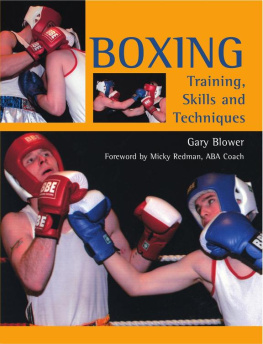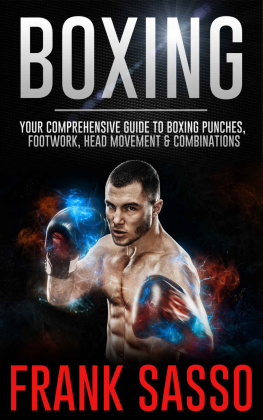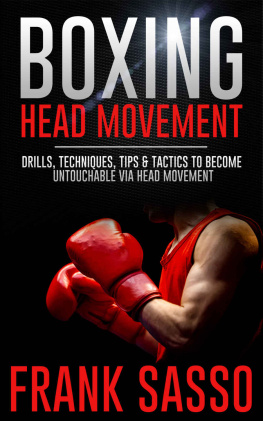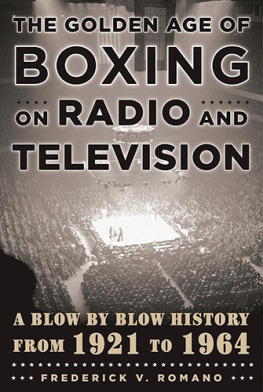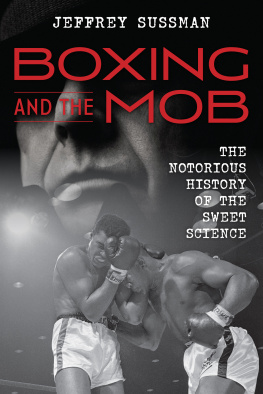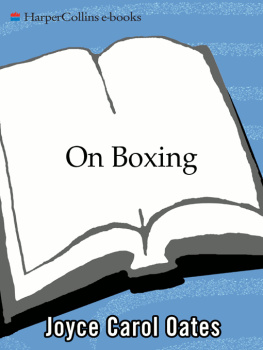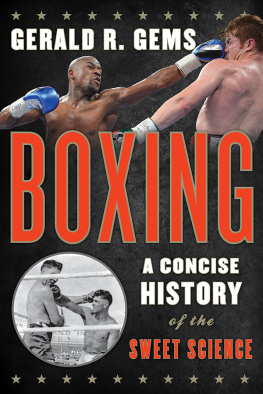Navigation
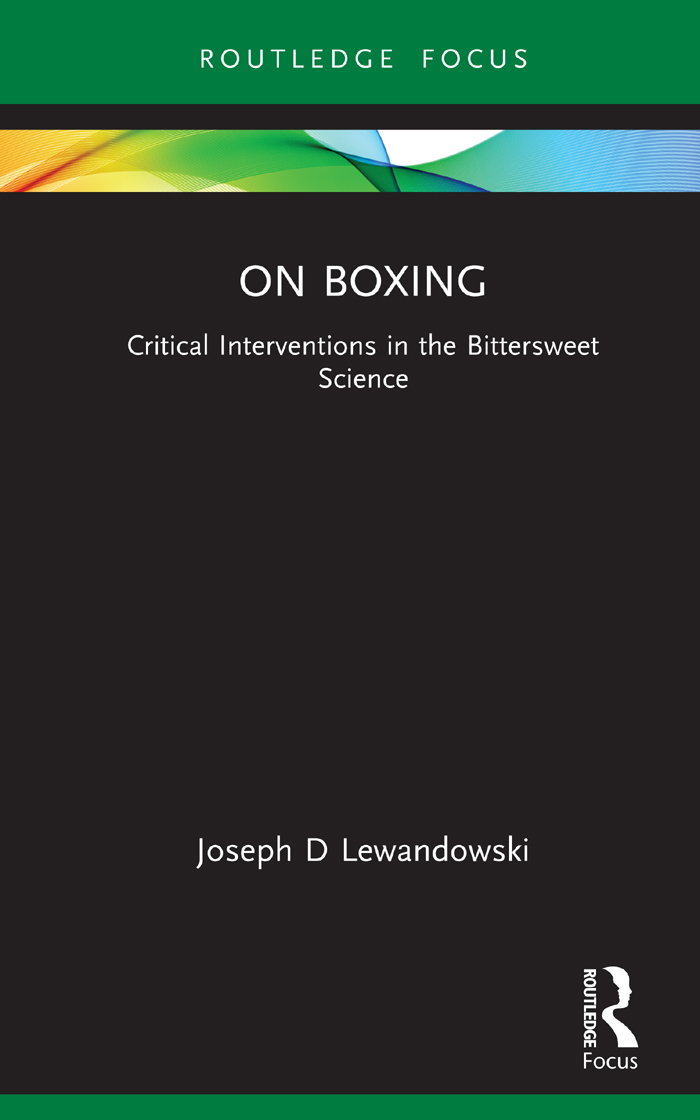
On Boxing
This book is a philosophical and cultural critique of contemporary boxing. It broadens and deepens our understanding of the empirically and normatively entwined complexities of a sport that is often misunderstood and all too easily reduced to stereotypes.
Moving between and among work in ethnography, sociology, urban studies and, especially, the philosophy of sport, and drawing on research in boxing gyms in the United States, the book presents a stereoscopic view of professional boxing as both situated cultural practice and formalized competitive sport. It takes us inside and outside the ring in discussions of the cultural embeddedness of boxing and boxing gyms, the formation of pugilistic selfhood and boxer cool, the nature and function of combat sport violence and sparring, and the aesthetics and ethics of cornering a boxing match. With its interdisciplinary focus on the empirical and normative dimensions of professional pugilism, On Boxing makes explicit the bittersweetness of the sweet science and provides a new theoretical framework for analyzing boxing and, indeed, sport in general.
Written for a broad audience, this is important reading for scholars and students working in the areas of philosophy and sociology of sport and combat sport studies, as well as policymakers, coaches, and commentators engaged in the sport of boxing.
Joseph D Lewandowski is a writer, researcher, educator, and avid pugilist. A former holder of the Fulbright Masaryk Distinguished Chair in Social Studies, he currently serves as Professor of Philosophy at the University of Central Missouri, USA.
Routledge Focus on Sport, Culture and Society
Routledge Focus on Sport, Culture and Society showcases the latest cutting-edge research in the sociology of sport and exercise. Concise in form (20,00050,000 words) and published quickly (within three months), the books in this series represents an important channel through which authors can disseminate their research swiftly and make an impact on current debates. We welcome submissions on any topic within the socio-cultural study of sport and exercise, including but not limited to subjects such as gender, race, sexuality, disability, politics, the media, social theory, Olympic Studies, and the ethics and philosophy of sport. The series aims to be theoretically-informed, empirically-grounded and international in reach, and will include a diversity of methodological approaches.
List of titles
Referees, Match Officials and Abuse
Research and Implications for Policy
Tom Webb, Mike Rayner, Jamie Cleland and Jimmy OGorman
Lifestyle Sports and Identities
Subcultural Careers Through the Life Course
Tyler Dupont and Becky Beal
On Boxing
Critical Interventions in the Bittersweet Science
Joseph D Lewandowski
For more information about this series, please visit: https://www.routledge.com/sport/series/RFSCS
On Boxing
Critical Interventions in the Bittersweet Science
Joseph D Lewandowski

First published 2022
by Routledge
2 Park Square, Milton Park, Abingdon, Oxon OX14 4RN
and by Routledge
605 Third Avenue, New York, NY 10158
Routledge is an imprint of the Taylor & Francis Group, an informa business
2022 Joseph D Lewandowski
The right of Joseph D Lewandowski to be identified as author of this work has been asserted in accordance with sections 77 and 78 of the Copyright, Designs and Patents Act 1988.
All rights reserved. No part of this book may be reprinted or reproduced or utilised in any form or by any electronic, mechanical, or other means, now known or hereafter invented, including photocopying and recording, or in any information storage or retrieval system, without permission in writing from the publishers.
Trademark notice: Product or corporate names may be trademarks or registered trademarks, and are used only for identification and explanation without intent to infringe.
British Library Cataloguing-in-Publication Data
A catalogue record for this book is available from the British Library
Library of Congress Cataloguing-in-Publication Data
Names: Lewandowski, Joseph D., 1966- author.
Title: On boxing : critical interventions in the bittersweet science / Joseph D Lewandowski.
Description: Abingdon, Oxon ; New York, NY : Routledge, [2022] | Series: Routledge focus on sport, culture and society | Includes bibliographical references and index
Identifiers: LCCN 2021031799 | ISBN 9781032018898 (hardback) | ISBN 9781003196693 (ebook)
Classification: LCC GV1133 .L45 2022 | DDC 796.83--dc23
LC record available at https://lccn.loc.gov/2021031799
ISBN: 978-1-032-01889-8 (hbk)
ISBN: 978-1-032-05236-6 (pbk)
ISBN: 978-1-003-19669-3 (ebk)
DOI: 10.4324/9781003196693
Typeset in Times New Roman
by MPS Limited, Dehradun
For my father, a pugilist of the soul.
Contents
PART I
Boxing and culture
PART II
Boxing and philosophy
The 1970s was, by all accounts, one of the greatest decades in the history of heavyweight boxing in the United States. The sport was widely broadcast on network television, often eclipsed quintessentially American sports, such as football and baseball, in the popular imagination, and was part of the fabric of American culture. Indeed, the boxing film Rocky, released in the autumn of 1976, was nominated for ten Oscar awards, won awards for Best Picture, Best Director, and Best Film Editing, and was the highest grossing film in the United States (and Canada) that year. Whether or not one liked boxing, names such as Joe Frazier, George Foreman, Ken Norton and, of course, Muhammad Ali were as familiar then as Tom Brady, Derek Jeter, and Megan Rapinoe are today.
So it was perhaps atypical but not entirely surprising that a scrawny athletic kid then growing up in a suburb of Milwaukee, Wisconsin managed to convince his father (a local Lutheran clergy) to build a makeshift boxing gym in the lower level of his familys home. A large military-style duffel bag stuffed with heavy blankets hung from the basement ceiling, a cheap speed bag poorly anchored to the wall, some gloves and a jump rope was all it tookand with that I was hooked on the sport of boxing.
Many an evening was spent hitting those bags and skipping rope, and from time to time a member of my fathers local parishBob Inzeo: bricklayer, ex-con, and former Golden Gloves competitorwould come by to give me pointers and teach me basic combinations. This emerging interest of mine in pugilism was not confined to late night workouts in my fathers homemade boxing gym, however; it spilled over into my daily life, and, indeed, even my studies at school. In response to an elementary school class assignment to write a letter to a famous person, I proudly drafted a hand-written missive to Muhammad Ali, offering a few pointers and, of all things, including an original float-like-a-butterfly style poem to inspire him.
My infatuation with boxing persisted, but, with no local gym to train in, seemed destined to remain limited to bag work and those basement-training sessions with Mr. Inzeo. Until, that is, the first day of 4th grade, when a small yellow school bus rolled up to the entrance of our neighborhood school, Highland View Elementary. It must have been 1975. Under court order, Milwaukee and its surrounding all-White suburbs were in the process of desegregating their public schools. On that day 45 kidsBlack and Brownwarily stepped out of the bus. As it turned out, two of thoseTyrone Gonzales and Lavelo McClainwere in my 4th grade class.


